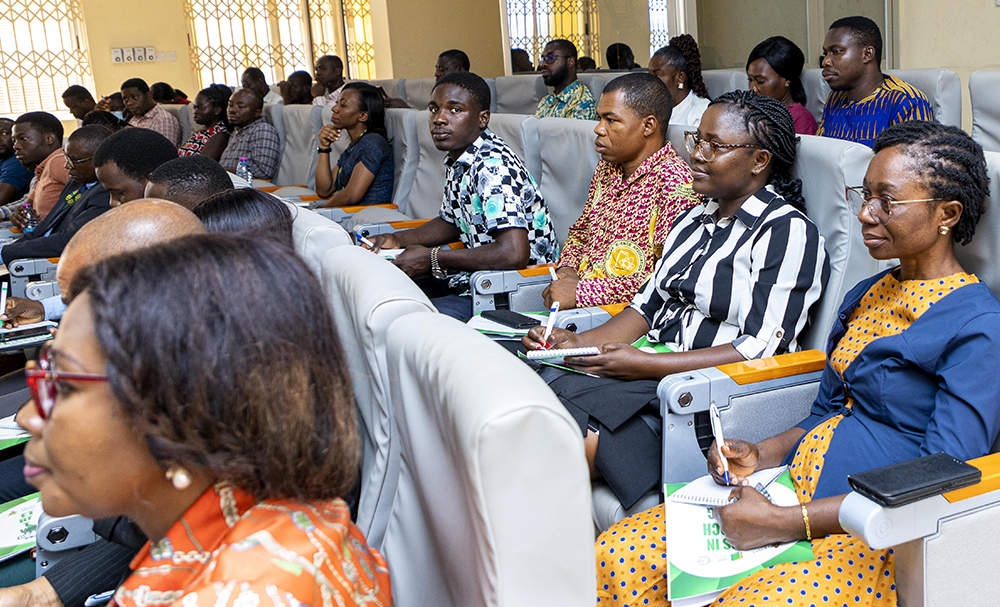The Office of Grants and Research (OGR) of the Kwame Nkrumah University of Science and Technology (KNUST) in collaboration with the Brew-Hammond Energy Centre, organised a two-day Ethics in Research Training workshop for Ethics Review Committees (ERCs) and Researchers respectively from the 13th to 14th November 2024 at the RWESCK Auditorium.
In his remarks, the Director of the Office of Grants and Research (OGR), Professor Philip Antwi-Agyei, said that the workshop funded by Climate Compatible Growth (CCG) was to enhance the capacity of faculty and committee members. He highlighted that due to recent catalogues of unethical research, there is a need to conduct responsible research that can inform policymaking.
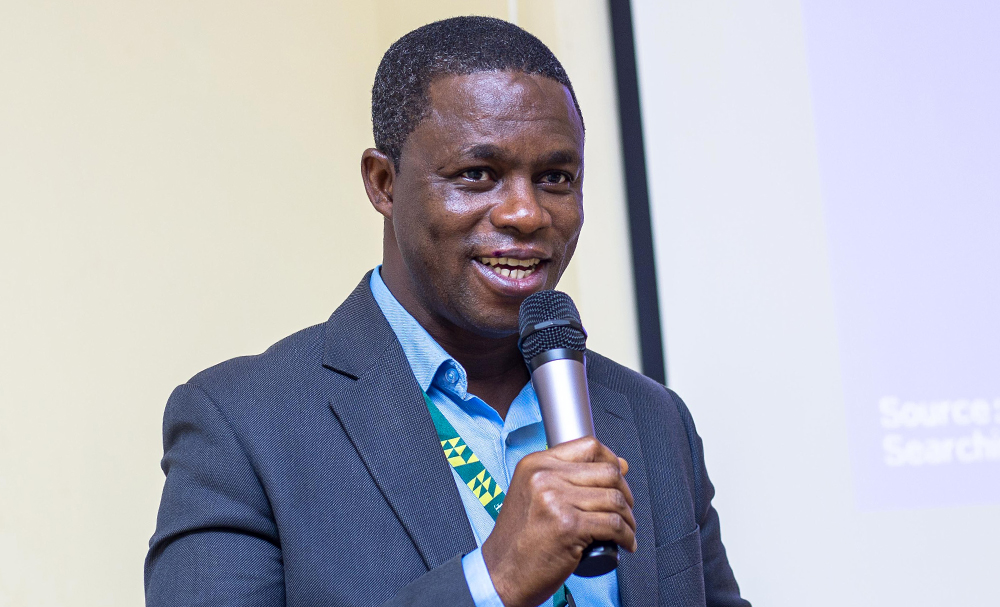
According to Professor Antwi-Agyei, the university has established four research ethics committees to uphold ethical research standards and foster a culture of integrity across all research activities in the University. These committees include the Committee of Humans and Publications Research Ethics (CHPRE), Animal Research Ethics Committee (AREC), Human and Social Science Research Ethics Committee (HuSSREC) and Environmental and Farm Safety Ethics Committee. He urged participants to take full advantage of the workshop and demonstrate integrity and the highest levels of standard in every facet of research including research design, data collection and interpretation.
Professor David Ato Quansah, Director of the Brew-Hammond Energy Centre, expressed the Centre’s commitment to enhance research and collaborate with the OGR for continuous learning impact. He remained optimistic that this collaboration with OGR will continue to flourish and lead to more fruitful collaborative endeavours in the future.
The Country Co-coordinator for CCG, Ing. Professor Joseph Akowuah said that CCG focuses on working with collaborators to discuss key priorities and contribute meaningfully to research. He was delighted with the partnership between CCG and KNUST and assured of future collaboration for mutual benefits.
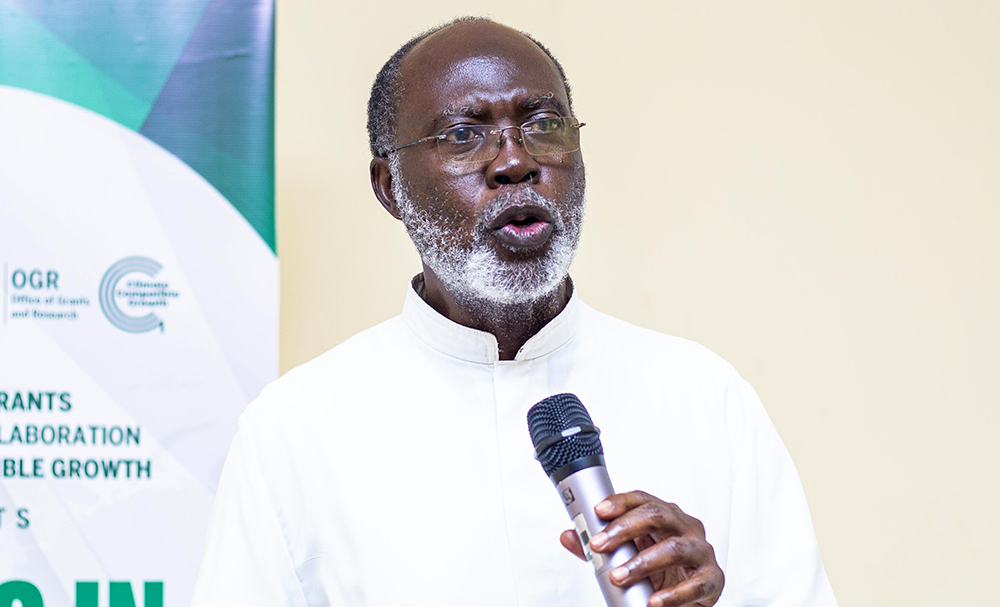
During the workshop, Rev. Professor John Appiah-Poku, a Professor of Behavioural Science, at KNUST, led a session on the history of research ethics. He defined Ethics as what researchers ought and ought not to do. He took participants through how researchers think and what researchers need to know. He emphasised that ‘Good science is good ethics, and ethical practices must drive science for the benefit of all.’
Presenting on the Responsibilities of Ethics Committee members, Dr. Adolf Kofi Awua from the University of Cape Coast, noted that ERCs answer ethical questions that will lead to protecting those in research, serving as Gatekeepers. ‘Ethics reviewers see their role as gatekeepers, ensuring that participants are fully informed and free to decide whether to participate. They emphasize minimizing risk and maximizing benefits, with scientifically sound study designs that address the research question effectively,’ he said.
Dr. Awua encouraged reviewers to often reflect on the participant’s perspective to identify potential oversights, ensuring that all ethical issues are appropriately addressed.
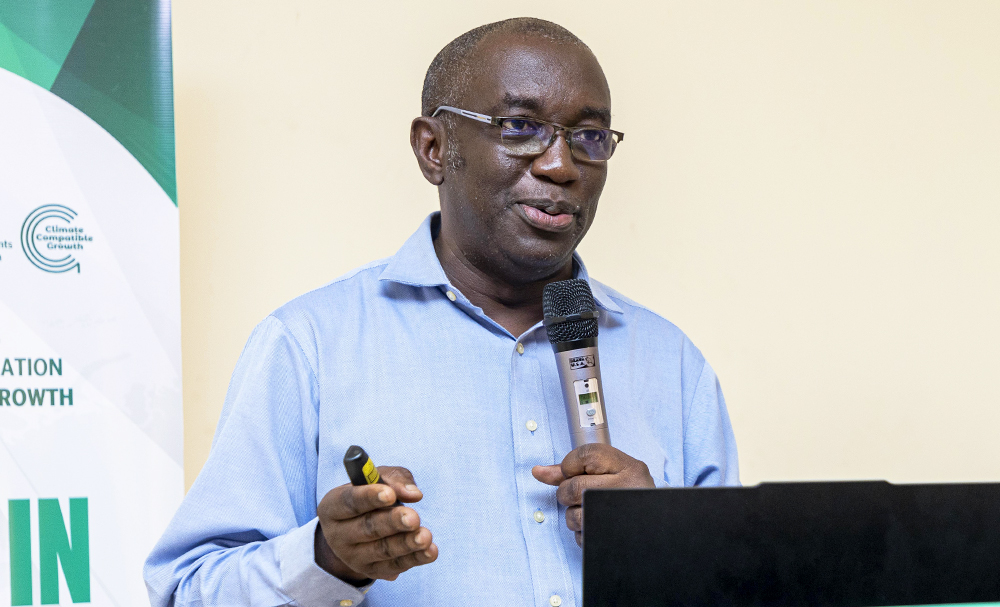
Professor Samuel K. T. Newton, former Dean of the School of Public Health, KNUST, provided an insightful overview of Research Ethics. He mentioned that Ethical principles form the foundation of responsible research practices, ensuring the protection and well-being of participants. He added that central to these principles is respect for human dignity, which demands fairness, integrity, and the recognition of participants' intrinsic worth. He advised researchers to adhere to the process of obtaining free and informed consent, ensuring that participants fully understand the study and voluntarily agree to take part. ‘‘Special care must also be taken to protect vulnerable groups who may face higher risks of harm or exploitation,'’ he added.
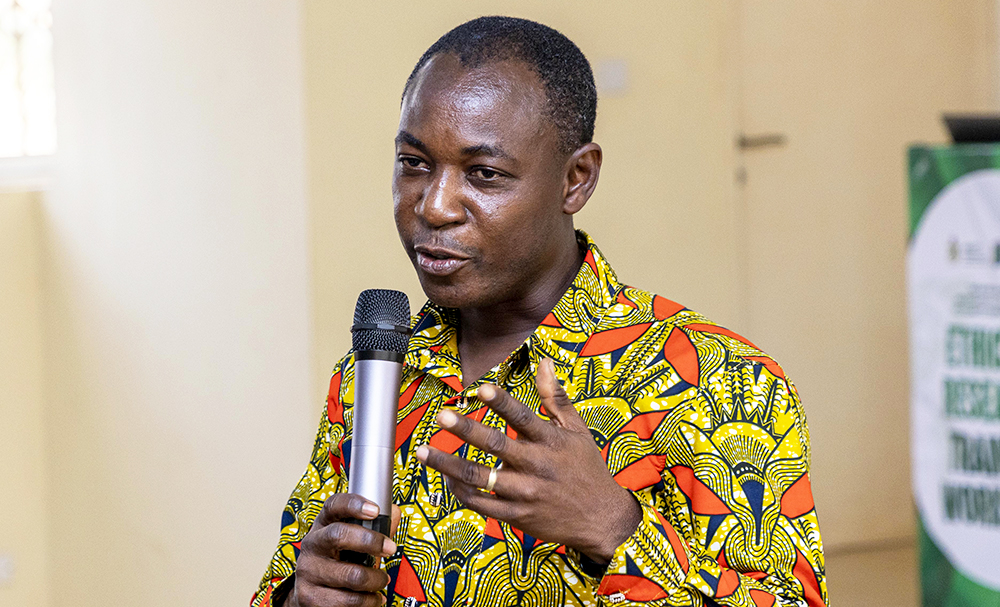
In his presentation on Reviewing Research Protocols and Writing Ethical comments, Dr. Samuel Asiedu Owusu, from the Directorate of Research, Innovation and Consultancy, University of Cape Coast, explained that when writing ethical comments on research protocols, reviewers should use the checklist or form provided by the Institutional Review Board (IRB). He said that the objective is to systematically identify gaps in each section of the protocol and communicate these observations clearly and constructively. This approach, he added, helps investigators understand the ethical gaps, locate the relevant sections, and implement changes. He indicated that offering practical suggestions to improve ethical compliance is also beneficial for educating investigators. Dr. Owusu further discussed the key responsibilities of research investigators and emphasised the importance of integrity in publication ethics, guiding researchers through best practices in authorship.
The workshop also featured a discussion session on specific challenges faced by various ethics committees, including CHPRE, HuSSREC, AREC, and Environmental and Biosafety committees. An interactive session was held to address ethical issues in daily research practices, where participants shared their experiences and sought clarifications to their questions. Participants engaged in collaborative dialogue on solutions to overcome these challenges.








